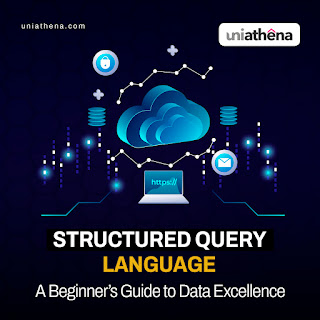The Evolving Role of SQL in Business: Trends and Opportunities
In today's data-driven world, the potential of handling, recovering, and analyzing information becomes crucial to business success. According to the 2024 Stack Overflow Developer Survey, SQL ranks second in the most utilized languages among professional developers, at 54.1%. This speaks volumes about the vital role SQL plays in managing and querying databases. Learning SQL is essential and critical for anyone wanting to perform well in data management. As more organisations depend on data-driven decisions, understanding the future of SQL within the business world becomes key.
Big Data and SQL
Big Data has revolutionized many ways in which businesses have been preparing data, from social media, IoT, and large-scale transactions pouring in. It pushes organizations to manage datasets of huge size, and volume. SQL can make it seamlessly integrate with Big Data technologies, therefore, keeping SQL more relevant now than ever before.
With the organization requiring these insights from their datasets in real-time, the functionality of running SQL queries against Big Data systems opens new doors to insights and visualization. In a world of rapid decision-making, SQL acts as a fill-in for the gap between traditional databases and modern Big Data solutions as the business continues gaining value from their data.
Cloud Computing and SQL
Cloud computing has transformed the IT landscape, and SQL has become one of the most important drivers of this revolution. This is largely due to cloud-based database solutions, such as Amazon RDS, Google Cloud SQL, and Microsoft Azure SQL Database, among many others, that let organizations access top-shelf database management systems without forcing them to maintain extensive on-premise infrastructures.
Advantages of cloud-based SQL solutions include:
Scalability: Cloud databases grow with the rise in dataset size, thus, it is flexible for an organization to scale resources up or down depending on what business requirements call for.
Cost-effectiveness: Every organization is relieved of the upfront capital expenditure, as it pays only for the resources consumed while using cloud-based SQL databases.
Accessibility: Cloud databases enable teams to access data from anywhere and collaborate, thus supporting remote work and global operations.
In the next couple of years, we are likely to see increased pull for cloud-based SQL solutions, since more and more businesses are looking to utilize cloud computing without giving up on SQL for database management.
Machine Learning and SQL
As machine learning becomes common, linking SQL to machine learning workflows opens immense possibilities that businesses can leverage. SQL is compatible with many machine learning environments. It enables data scientists to access and prepare data for analysis directly from relational databases. This trend is especially evident in the following areas:
Data preparation: SQL excels at cleaning and preprocessing data efficiently, enabling the creation of quality machine-learning models.
Model Deployment: SQL databases allow for the storage of machine learning models so as to make them available for real-time prediction and decision-making.
Data Capabilities: SQL queries can be used to design advanced machine learning algorithms, which in turn means advanced analytics can be applied without having to switch between programming languages by the analyst.
As SQL and machine learning continue to intersect, businesses will increasingly rely on these technologies to drive innovation, operational efficiency, and people's experiences.
Explore UniAthena’s Online SQL Courses for Beginners
With this Online SQL Course embark on the journey of transformation into the world of databases. This short course will take your understanding from fundamental concepts to advanced SQL techniques. You will gain insights into critical elements involving data structures, DBMS and RDBMS principles, and the essential SQL language within just 1-2 weeks of learning. Besides, it will equip you with an understanding of how to use SQL data types in statements, constraints, joins, stored procedures and the setup of indexes.
A combination of theoretical knowledge and practical experience will be provided to you for efficient database management and data manipulation. Plus, get a chance to boost your credentials by earning a Blockchain-verified SQL Certification. Take the first step towards data mastery. Sign up now and upgrade your skills with SQL.




Comments
Post a Comment